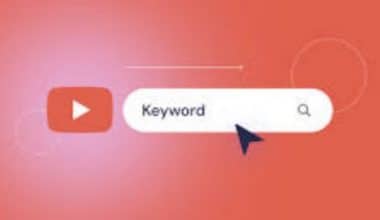Let’s look more closely at which small business apps on iOS and Android are the most profitable and which mobile app categories are currently free and the most popular with users.
Business Apps
#1. QuickBooks
Try it out if you’re looking for reasonably priced, user-friendly accounting business apps and you don’t already use QuickBooks. The app allows you to send estimates via email, track expenses, send invoices, save receipt photos, manage late fees, access customer information, and view reports. A 30-day trial of the business app is available, and even subscribers to the $12.50/month Simple Start plan have full access to the mobile version of the QuickBooks software.
#2. Gusto
This app is yet another excellent Intuit business app for SMBs, providing a single location to manage payroll, benefits, time tracking, and human resources. Since Gusto was created especially for small businesses, unlike other payroll solutions, it is simple to use, even if you have never used payroll software before. The cost of the basic app plan, which includes the mobile app, is $39 per month (plus $6 for each additional user).
#3. Avast Antivirus
With tools like antivirus, firewall, email protection, anti-spam, and the ability to sandbox applications for total security, Avast Business Antivirus is a great suite of endpoint security software for businesses. Although the free version of this security suite has long been regarded as one of the best, if affordability and ease of use are priorities, Avast Business Antivirus might be a wise choice.
#4. PayPal
Due to its simplicity of use and position as our top pick for the best credit card processing service, PayPal has established itself as the go-to payment gateway for many online businesses.
The most difficult part of setting up PayPal processing is frequently pasting a supplied API key to begin; PayPal has made integration into payment gateways simple for major e-commerce platforms, frequently requiring little more than a few clicks and an email address. Additionally, PayPal provides expandable features like the ability to accept payments in-person using a card reader. PayPal is one of the most affordable options for new businesses and small enterprises because there are no additional fees or monthly fees.
#5. Skype
We still consider Skype to be the best free small business app for hosting video conferences and general chat because it was one of the first major communication apps. Using the front-facing camera on your phone or tablet, you can use the Android app to take Skype with you wherever you go and stay in touch with your team. One of Skype’s best features is the Skype Credit program, which allows users to call non-Skype users and even international numbers at a reasonable rate.
#6. Slack
Teams working on projects should use Slack, a free business chat app (with optional paid tiers). This is especially true if the teams are spread out across different locations. The paid versions, which start at $6.67 per month, allow you to collaborate with people from other organizations and send direct messages. It also allows you to host video calls without leaving the app, search through previously recorded conversations, drag and drop files, and create channels for various topics.
#7. Zoho One
A flat fee of $37 per employee per month with an annual subscription is what Zoho One charges business users to access all 40 of them. Even though this price may seem high for an app bundle, Zoho’s products are incredibly functional and simple to use on a desktop or mobile device. It’s challenging to list all the tasks that Zoho One is capable of. Some of the standout features are CRM software, reporting, social media management, project management, etc
#8. TripIt
Even though business travel can be hectic, TripIt makes it less demanding. Send your trip confirmation emails to TripIt, and the app will create an itinerary for you, reminding you when to leave, sending your itinerary to those who need to see it, providing information on restaurants near you, etc. TripIt is cost-free, and TripIt Pro, which costs $49 per year after the free trial, adds features like assistance in locating alternate flights, real-time alerts about delays and cancellations, and a rewards program tracker.
#9. Evernote
One of the most well-known free (with paid tiers) business-friendly apps available is Evernote, another organizational powerhouse. Evernote is great for managing both your personal and professional lives simultaneously. This is because it allows you to create different notebooks, search old notes by keyword, and share notebooks for collaboration. While locking down private notes, creating to-do lists and performing light project management, scanning documents with your camera, and accessing information across all of your devices. The paid features of Evernote are interesting to check out, and the company is constantly adding features for team collaboration.
Free Business Apps for small businesses
#1. FreshBooks
Being a small business owner entails having numerous concerns. The cloud-based platform at FreshBooks is evidence that it was created with small business owners in mind. Whether using a desktop or a mobile device, you can sync and view all of your financial information anywhere.
You can quickly respond to customer feedback and check the status of payments directly from the mobile app. Additionally, it has excellent time-tracking capabilities. It also allows you to take photos of any receipts to instantly add them to your expenses. Your cash flow has never been easier to manage in all respects.
Although it only covers a select few clients, the basic plan gives you access to invoices, time tracking, and expenses. In addition to the ability to accept online credit card payments from your bank account. Paid plans improve this, and give you the option to send proposals in addition to recurring invoices. Therefore saving you time by letting you set up reminders for payments to be made automatically.
#2. Gusto
Gusto might come in handy for small business owners who need to manage a team. This app is a robust mobile app that manages taxes, benefits, and payroll all in one place. It aids in the onboarding of new employees, notifies the government of new hires, and manages all federal, state, and local taxes. Also, it automatically deducts worker’s compensation payments, and emails pay stubs to employees. The first month of this app’s use is free.
#3. Square
Currently, Square is the preferred payment app for small businesses. Square will be useful for all types of small businesses, including food trucks, retail stores, and beauty salons.
Square is available as a free download and includes a free credit card reader. With the help of this tiny reader, you can attach it to your phone or device, and quickly and easily process payments.
All credit card transactions through Square are subject to a 2.75 percent fee. A reader that can take both chip and contactless cards will cost you extra.
#4. LinkedIn
You probably already utilize this business networking site on your computer, but adding the app elevates the entire procedure. With the app, you’re more likely to use LinkedIn, which is a strong marketing tool.
Send updates on the fly, make new connections, hire new staff, follow motivational businesses and people, or keep an eye on your rivals. LinkedIn is also one of the free business apps to use.
#5. Asana
Even if you haven’t used Asana before, it’s a project management tool you may be familiar with. It ranks as our top project management software because it emphasizes tracking more than productivity, despite having a ton of useful features.
To ensure that you never miss a deadline, the app allows you to make to-do lists, set reminders, and add due dates, collaborators, instructions, and comments to tasks. Even better, you can upload images directly to Asana from other applications (like Google Drive). Furthermore, you can keep track of everything you and your coworkers work on to make sure the project is progressing according to plan.
#6. Teams
If you’ve done any remote work recently, you’re probably already familiar with this one. With a user interface that is simple to understand and in line with other Microsoft software in terms of simplicity, the app provides conference communication with multiple team members via messaging and video conference calls.
Fast integration with other Microsoft services, like Word and Excel, is offered by Microsoft Teams. By conversing with your team in real-time rather than sending lengthy emails that run the risk of losing the human touch, you could significantly increase your productivity. Speaking to your team in real time can improve your productivity. Cloud storage benefits this collaborative aspect as well by allowing your team to share crucial documents quickly and securely.
#7. Trello
Trello is a must-have on any list of top-notch free business apps. Although most of us are familiar with it as a productivity tool, it also works well for small teams.
You can do this to see the status of every project your team is working on. It’s an excellent way to make sure nothing falls through the cracks.
The boards, however, are only a starting point. Trello has evolved into an absolute productivity monster. You can create as many boards, teams, and activity logs as you want with the free plan. This entails that you can easily assign tasks to team members, set deadlines, and see what everyone is working on by simply clicking a button.
To make it simple to collaborate with other team members and potential clients, you can store documents and links on boards for easy access. If you want to start using a free productivity app, Trello is unquestionably something to consider.
#8. LastPass
As the owner of a startup company, you’ll probably need to manage several new software plans. If you work with private client data, your cyber security is more crucial than ever. Therefore, using a single master password for everything is the worst thing you can do.
Investing in a password manager will help you manage your company’s passwords. You can use LastPass on Android or iOS, and it is a simple-to-use app that integrates with your browser.
If you struggle to create strong passwords, LastPass can help you create lengthy, impossible-to-guess passwords and store them securely. To prevent anyone from accessing your information, they use encryption.
The premium version enables you to add more people to your plan and more devices, while the base plan of this app is completely free to use.
#9. Slack
The business world relies heavily on Slack. Whether your team is big or small, technology has completely changed how people communicate at work. The free version is ideal for companies with fewer employees.
Additionally, it enables you to sync Slack’s robust communication platform with up to 10 applications. As well as having one-on-one calls with team members, you can send up to 10,000 searchable messages.
#10. Canva
Canva is one of the tools you can use for free to create stunning graphics if online marketing is one of your strategies for promotion. The app lets you make videos, Instagram posts, Pinterest pins, YouTube thumbnails, posters, ad banners, and more. Canva offers a cost-effective paid option, but given the abundance of design elements and templates available in the free plan, you might not even need it. You don’t need to be an expert graphic designer to create captivating graphics; you can create excellent designs for your marketing campaigns by utilizing the app’s free features.
#11. PayPal
Everybody knows and adores PayPal, a great app for small businesses. You can run it entirely for free on your mobile device as a payment processor.
The mobile app is incredibly user-friendly if you plan to use PayPal as a payment processor. You can easily create and send invoices by clicking a button, and setting up and maintaining a business account is free. Therefore, you can use this as one of the free business apps for businesses.
Google My Business
With the help of services like Google Maps, Search, and Google Plus, Google My Business, an official Google app, connects companies with customers.
You can use the app to update the details about your company that appear on Google Search, Maps, and other Google services, share news and images on your Google Plus page and view custom statistics like the frequency with which your company appears on Google.
Remember that to manage a business with Google My Business, you must provide evidence that you are the owner; therefore, you cannot access a business that is not yours.
Small and medium-sized businesses can increase their visibility by using Google’s various services through the Google My Business app. The mobile app for Google My Business is no longer accessible. To keep your business profile current and connect with your customers wherever they are, use the Google Maps mobile app and Google Search. You can still access your business profile data using Google Search and the mobile Google Maps app.
How Can I Start My Own Business App
Making an app can take a lot of time, labor, and money, but it doesn’t have to be that way. Whether you want to market a product, engage with your neighborhood, or showcase your brand. Here are some suggestions for how to launch your mobile business app:
- Put together a business plan
- Work with app developers
- Establish a budget.
- App creation
- Marketing
- Maintenance
Which App Is Best for Selling?
Of all the services we reviewed, eBay has the longest history and a good reputation, so it is our pick for the best app for selling things. A seller is more likely to find buyers there than on less well-known sites because it boasts nearly 150 million buyers on its site worldwide. You generally know what you are getting because it has been around long enough for many of its users to have established reputations and reviews on the website. Nevertheless, there are still a few other apps that are effective for selling. These include Tradesy, OfferUp, Poshmark, Next Door, and Metamarket.
Which Type of Business Apps Are Most Profitable?
- Gaming
- Dating apps
- Social media apps
- Health and fitness apps
- Entertainment (music and videos) apps
How To Earn Money From Business Apps?
There are numerous ways to make money from mobile apps :
- Subscriptions
- In-app purchases
- Transaction fees
- Advertising.
What Are Business Apps Called?
Any program or collection of programs used by business users to carry out various business functions is referred to as business software (or a business application). These business tools are employed to boost output, gauge output, and carry out various other precise business operations. Some of these business apps are free to use.
Do App Owners Earn Money?
The amount of money paid to the owner of business apps depends on how many times the ad is clicked or if the user installs the app after clicking. Additionally, subscriptions are the best and most effective app monetization method.
How Much Money Do You Need To Develop An App?
Creating business apps can cost anywhere between $40,000 and $150,000, and in some cases even more. A variety of factors, including app type, functionality, complexity, the chosen vendor, and development strategy, may have an impact.
Conclusion
Mobile apps have a lot of potential for financial gain. Mobile applications that offer excellent customer service, keep users entertained, and give them a variety of payment options tend to be the most financially successful.
Speak with a development partner who can help you navigate the development process if you’re unsure of how to proceed with your app idea or how to make money from it.
Business Apps FAQs
What Are The Free Business Apps?
- PayPal
- Canva
- LastPass
- Slack
- Teams
Which Type of Business Apps Are Most Profitable?
- Gaming apps
- Social Media apps
- Dating apps
How Do You Earn Money From Business Apps?
- Subscriptions
- In-App purchases
- Advertising






